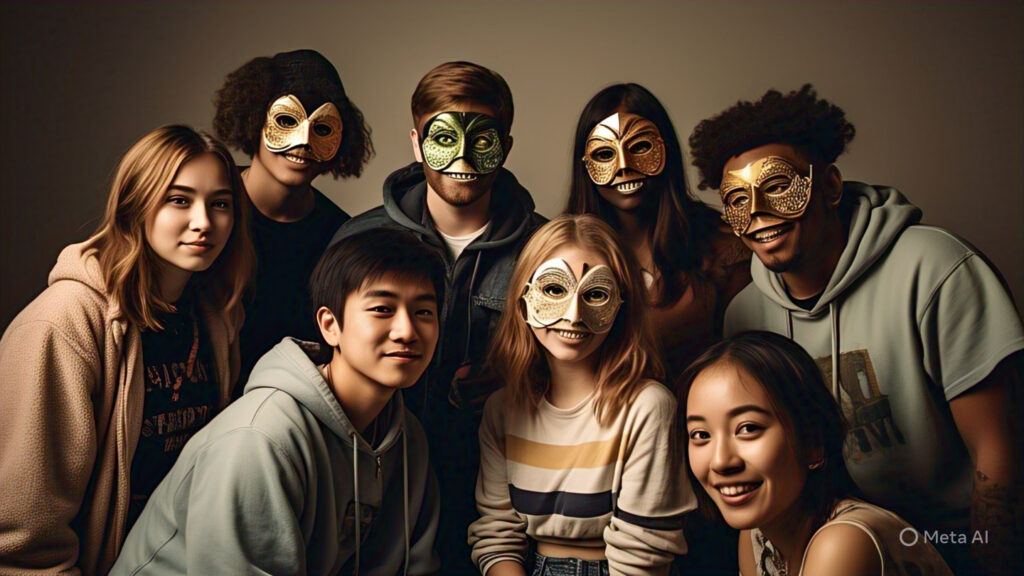Introduction
Relationships are the heartbeat of our lives—they shape our happiness, growth, and sense of belonging. But not all relationships are genuine. Some friends may leave you feeling drained, used, or even betrayed, making you question their intentions. Learning how to spot fake friends is a crucial skill to protect your emotional well-being and build connections that truly matter. In this blog, we’ll dive deep into the signs of fake friendships, explore why people might pretend to be your friend, and share practical tips to nurture authentic bonds. Whether you’re navigating friendships in your teens, 20s, or beyond, this guide will help you identify who’s real and who’s not—starting with understanding how to spot fake friends.

What Are Fake Friends and Why Do They Exist?
A fake friend is someone who pretends to care about you but has ulterior motives—whether it’s for personal gain, social status, or convenience. They might be charming at first, but over time, their actions reveal their true intentions. So, why do fake friends exist?
- Self-Interest: Some people befriend others to gain something—money, popularity, or access to opportunities.
- Insecurity: They may feel better about themselves by surrounding themselves with people they can control or manipulate.
- Social Pressure: In 2025, with social media amplifying FOMO, some people collect “friends” to boost their online image rather than build real connections.
Understanding these motives can help you in how to spot fake friends by recognizing patterns early on.

How to Spot Fake Friends: 7 Telltale Signs.
Spotting a fake friend isn’t always easy—they can be masters of disguise. But certain red flags can help you see through their facade. Here are seven signs to watch for when figuring out how to spot fake friends.
1. They’re Only Around When It Benefits Them
Fake friends often show up when they need something—a favor, a shoulder to cry on, or a plus-one for an event. But when you need support, they’re suddenly “busy.” For example, if your friend only texts you when they need a ride but never checks in otherwise, that’s a sign.
2. They Gossip About You Behind Your Back
A true friend respects your privacy. If you hear through the grapevine that your friend has been spilling your secrets or talking negatively about you, it’s a major red flag. Trust is the foundation of any good relationship, and gossip breaks it.
3. They’re Jealous of Your Success
Ever shared good news—like a promotion or a new relationship—only to get a lukewarm response? Fake friends often struggle to celebrate your wins because they feel threatened or envious. They might downplay your achievements or change the subject quickly.
4. They Don’t Respect Your Boundaries
If a friend constantly pushes you to do things you’re uncomfortable with—like borrowing money you can’t afford to lend—or ignores your need for space, they’re not respecting you. This disregard shows they care more about their needs than your well-being.
5. They’re Inconsistent in Their Behavior
One day they’re your bestie, the next they’re cold and distant. This inconsistency can leave you confused and anxious. Fake friends often adjust their behavior based on what suits them at the moment, not on genuine care for the relationship.
6. They Take More Than They Give
Healthy friendships are a two-way street. If you’re always the one reaching out, planning hangouts, or offering support, while they rarely reciprocate, it’s a sign of imbalance. Fake friends often drain your energy without giving back.
7. They Don’t Show Up When It Matters
Life’s tough moments—like a breakup, a family issue, or a mental health struggle—reveal who your true friends are. If your friend bails when you need them most, or offers empty promises like “I’ll call you later” but never does, they’re likely not in it for the long haul.
Recognizing these signs is the first step in how to spot fake friends and protect yourself from toxic relationships.

The Emotional Impact of Fake Friendships
Fake friendships can take a serious toll on your mental health. Here’s how:
- Low Self-Esteem: Constantly feeling unappreciated or betrayed can make you question your worth.
- Trust Issues: Being let down by fake friends can make it harder to open up to new people.
- Stress and Anxiety: The uncertainty of dealing with inconsistent or manipulative friends can leave you on edge.
In 2025, where social media often blurs the line between real and fake connections, it’s more important than ever to learn how to spot fake friends to safeguard your emotional well-being.

Why Do We Attract Fake Friends?
Sometimes, we unknowingly attract fake friends due to our own behaviors or circumstances. Reflecting on these factors can help you break the cycle:
- People-Pleasing Tendencies: If you’re always saying yes to avoid conflict, fake friends might see you as an easy target.
- Lack of Boundaries: Not setting clear limits can invite people who take advantage of your kindness.
- Loneliness: When we’re desperate for connection, we might overlook red flags in new friendships.
Understanding why you might attract fake friends is key to changing your approach and mastering how to spot fake friends before they get too close.

How to Protect Yourself from Fake Friends
Now that you know how to spot fake friends, let’s talk about how to protect yourself and build healthier relationships.
1. Set Clear Boundaries
Be upfront about what you’re comfortable with. If a friend asks for too much—like constant favors—politely say no. True friends will respect your limits.
2. Trust Your Gut
If something feels off about a friend, don’t ignore it. Your intuition often picks up on subtle cues that your conscious mind might miss.
3. Surround Yourself with Positive People
Seek out friends who uplift you, celebrate your successes, and show up when it counts. Quality matters more than quantity—having a few genuine friends beats a large circle of fake ones.
4. Communicate Openly
If you suspect a friend is being fake, address it directly but calmly. For example, “I’ve noticed you only reach out when you need something—can we talk about it?” This gives them a chance to explain, but also sets a standard for how you expect to be treated.
5. Take Time to Build Trust
Don’t rush into deep friendships. Let trust develop naturally over time by observing how someone behaves in different situations.
By applying these strategies, you’ll not only know how to spot fake friends but also how to keep them at a distance while fostering meaningful connections.

Building Authentic Relationships in 2025.
In today’s digital age, building authentic relationships can feel challenging. Social media often prioritizes quantity over quality, with “friends” measured by likes and follows. But genuine connections are worth the effort. Here’s how to cultivate them:
- Be Vulnerable: Share your true self—flaws and all—with people you trust. Authenticity attracts authenticity.
- Prioritize Face-to-Face Time: In 2025, virtual hangouts are common, but nothing beats in-person connection. Plan a coffee date or a walk in the park.
- Practice Gratitude: Show appreciation for your real friends by thanking them for their support. A simple “I’m so glad you’re in my life” goes a long way.
Focusing on these habits will help you move past fake friendships and build a circle of people who truly care.
Conclusion
Learning how to spot fake friends is a game-changer for your emotional health and relationships. By recognizing the signs—like inconsistency, jealousy, or lack of support—you can protect yourself from toxic connections and focus on building authentic friendships. In 2025, where social media can blur the lines of what’s real, it’s more important than ever to prioritize quality over quantity in your relationships. Set boundaries, trust your instincts, and surround yourself with people who lift you up. True friends are worth the effort—they’re the ones who make life’s journey meaningful. So, take a moment to reflect: Are there any fake friends in your life? It’s time to let go and make space for the real ones.







